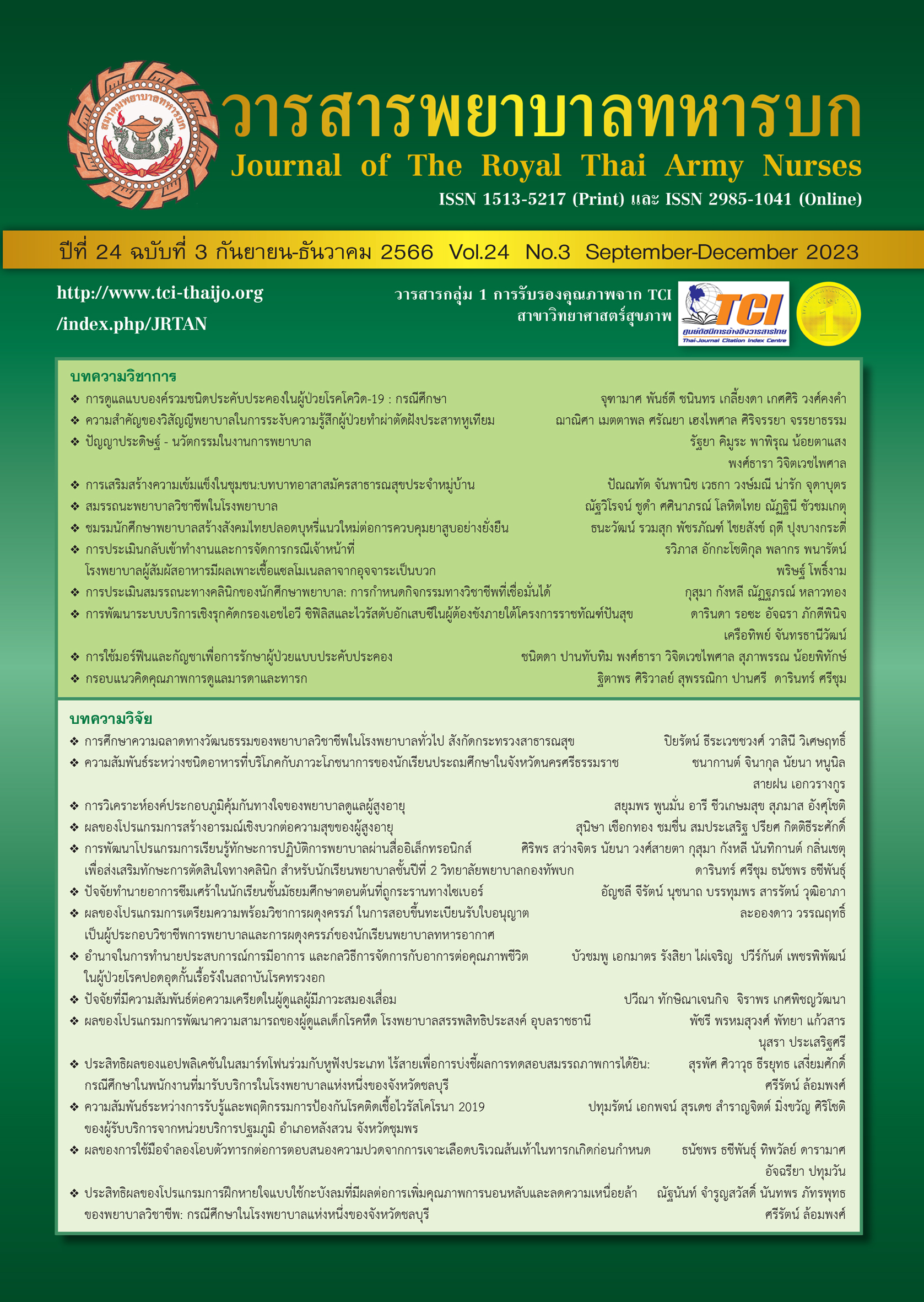Developing a Proactive HIV Screening Service System Syphilis and Hepatitis C in Prisoners Under the Pun Suk Correctional Project
Abstract
Prisoners reserve the right to access healthcare services like those who are not imprisoned. Healthcare service is a fundamental right that is provided for the Thai population. Due to dense living conditions, prisoners are prone to have stronger severe symptoms from both communicable and non-communicable diseases. Most importantly, prisoners still have difficulty accessing healthcare services. Therefore, a disease screening process is crucial for new prisoners to determine their likelihood of having the disease. This process will diagnose if the prisoner has severe communicable disease as they might be an infection spreader in prison.
This study presents the disease screening process, which includes the preparation of medical supplies and equipment, a system for tracking prisoners, roles of medical staff, procedures for hospitals within the service network, and benefits from the screening process. It was found that the best time for the screening process, which prevents disease spread the most, is before imprisonment. Screening should also be conducted before parole to prevent the disease from spreading to communities.
Downloads
References
Green J, Strang J, Hetherton J, et al. Same-sex sexual activity of male prisoners in England and Wales. International Journal of STD & AIDS. 2003;14(4):253-7.
Crippen D, Duran D, et al. HIV Transmission Among Male Inmates in a State Prison System - Georgia, 1992 - 2005. Morbidity and Mortality Weekly Report. 2006;55(15);421-6.
Vaz RG, Gloyd S, Folgosa E, Kreiss J. Syphilis and HIV infection among prisoners in Maputo, Mozambique. International Journal of STD & AIDS. 1995;6(1):42-6.
Thaisri H, Lerwitworapong J, Vongsheree S, et al. HIV infection and risk factors among Bangkok prisoners, Thailand: a prospective cohort study. BMC Infectious Diseases. 2003;3(1);1-8.
World Health Organization. HIV Prevention, Care and Treatment in Prisons in the South-East Asia Region. WHO, Delhi; 2007.
Kanshana S. & Simond RJ., National program for preventing mother - child HIV transmission in Thailand: successful implementation and lessons learned. National Center for Biotechnology Information. 2002;16 (7):953-59.
Ford N. & Koetsawan S., A pragmatic intervention to promote condom use by female sex workers in Thailand. Bull World Health Organ. 1999;77(11):888-94.
Panitan Tungtragool. Legal Measures for Sanitation Right Protection of the Prisoner Abstract. (A Thesis for the Degree of Master of Laws). Bangkok : Dhurakij Pundit University; 2013 (in Thai)
Department of Disease Control. Thailand National Guidelines on HIV/AIDS Treatment and Prevention 2022. Bangkok : The Agricultural Co-operative Federation of Thailand; 2022. (in Thai)
Panita Kannasut. The Prisoner’s Rights to Healthcare. A Thesis for the Degree of Master of Laws. Department of Law. Pridi Banomyong Faculty of Law, Dhurakit Pundit University; 2014. (in Thai)
.Rattanawadee Na Nakorn. Benefits and Precautions of Health Screening. Health Systems Research Institute Journal. Jul-Sep 2013;7(3):325-30. (in Thai)
Bureau of Health Administration, Office of Permanent Secretary, Ministry of Public Health. Guideline on Prison Health is Public Health Systems Nonthaburi Province (Copy of Documents); 2016.(in Thai)
Nuttaya Onpiw, Panyupa NaoSrisorn, Payom Sinthusiri. Syphilis in Pregnancy, Nurse’s Roles. The Royal Thai Army Nurses. 2021;21(3): 1-10. (in Thai)
Aomtip Ponboobpha, Wantana Maneesriwongul, Wanna Sa-nongdej. Relationships between Selected Factors and Adherence to Antiretroviral Therapy among People Living with HIV. The Royal Thai Army Nurses. 2022; 23(3):314-22. (in Thai)
Hanley, T. Researching online counselling and psychotherapy: The past, the present and the future. Counselling and Psychotherapy Research. 2021;21(3):493-7.
Holmes, M. The complete handbook of coaching (3rd Ed.)., Action Learning: Research and Practice. 2019;16(3):311-4.
Downloads
Published
How to Cite
Issue
Section
License
Copyright (c) 2023 Journal of The Royal Thai Army Nurses

This work is licensed under a Creative Commons Attribution-NonCommercial-NoDerivatives 4.0 International License.
บทความหรือข้อคิดเห็นใดใดที่ปรากฏในวารสารพยาบาลทหารบกเป็นวรรณกรรมของผู้เขียน ซึ่งบรรณาธิการหรือสมาคมพยาบาลทหารบก ไม่จำเป็นต้องเห็นด้วย
บทความที่ได้รับการตีพิมพ์เป็นลิขสิทธิ์ของวารสารพยาบาลทหารบก
The ideas and opinions expressed in the Journal of The Royal Thai Army Nurses are those of the authors and not necessarily those
of the editor or Royal Thai Army Nurses Association.






